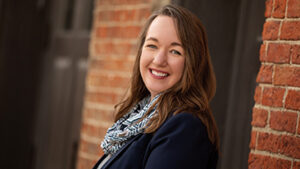Energy in Iowa: A year in review
Alexandra Olsen
Several female business leaders from throughout the Corridor shared their thoughts on the importance of mentoring programs, both in their own careers and within their current business operations.
Jennifer Bennett
President
Shive-Hattery Architecture + Engineering
Cedar Rapids
 Impactful mentors have been a key factor in Jennifer Bennett’s career success.
Impactful mentors have been a key factor in Jennifer Bennett’s career success.
Ms. Bennett, president of Shive-Hattery Architecture + Engineering in…

Get immediate, unlimited access to all subscriber content and much more.
Learn more in our subscriber FAQ.
Do you want to read and share this article without a paywall?
